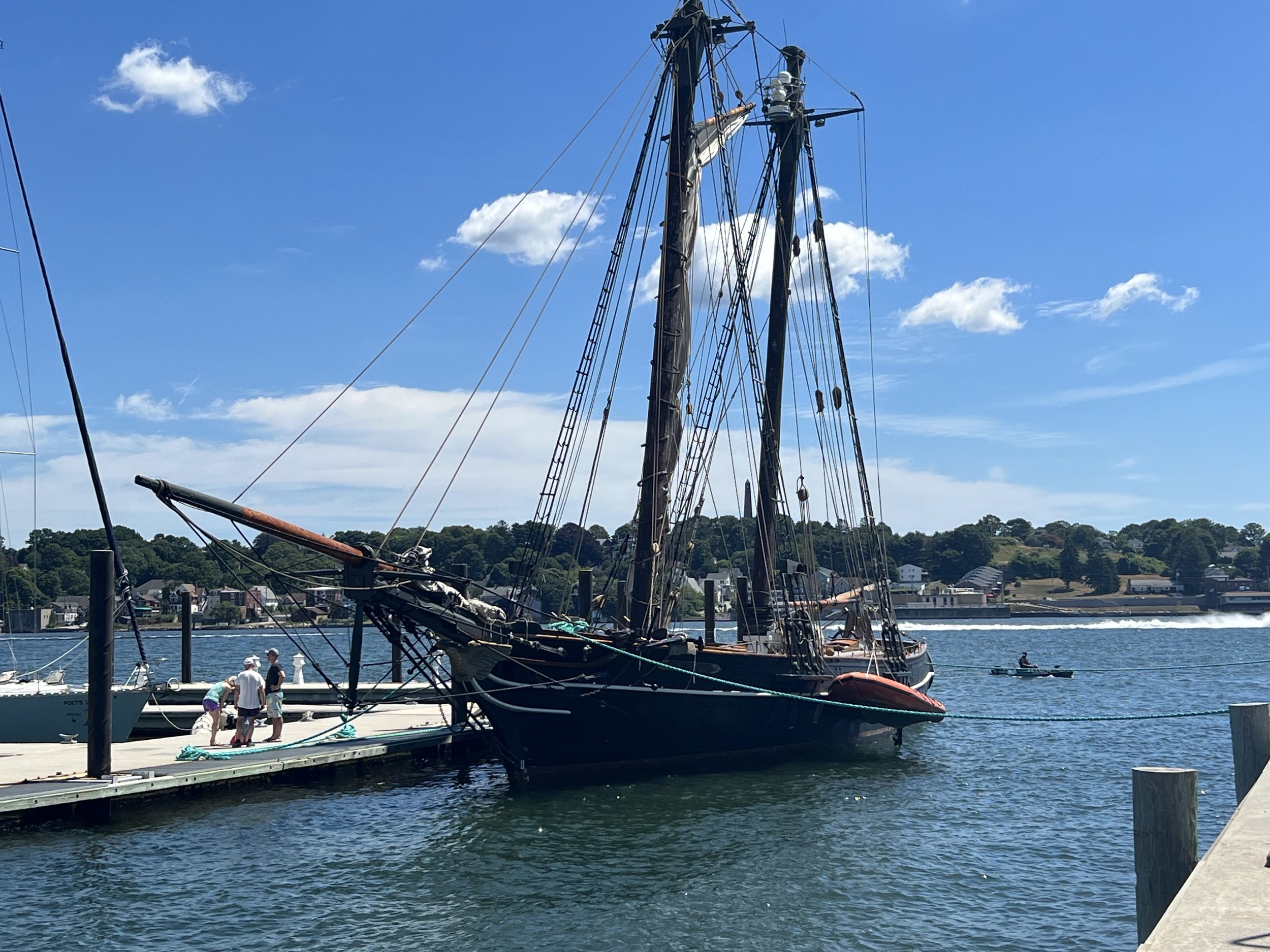The 2022 Frank C. Munson Institute at Mystic Seaport Museum

“We learned that interdisciplinary is not just a methodology, but a way of relating, of building networks.”
Overview
During the summer of 2022, Munson Institute werre part of the Reimagining New England Histories: Historical Injustice, Sovereignty and Freedom project. The Frank C. Munson Institute at Mystic Seaport Museum, in collaboration with the Center for the Study of Slavery & Justice at Brown University and Williams College, will held classes at Mystic Seaport to interrogate the region’s past. The history and legacies of settler colonialism, racial slavery, servitude, dispossession, Indigenous resistance, and African-American strategies for fashioning pursuits of freedom were considered. A distinctive feature of this summer program was the framing of these topics within the context of New England’s maritime setting, an environment that fostered interaction, mobility, and exploitation.
The Munson Institute is the leading, and often sole, center for the teaching of maritime history in the United States. It has offered graduate credit through the University of Connecticut for over 60 years while its faculty includes top maritime historians from across the United States.
In 2022, the Institute will continue as part of the multi-institutional Reimagining New England project funded by the Andrew W. Mellon Foundation. This enhanced summer session expanded the Munson Institute’s cadre of scholars with specialists from collaborating faculty and representatives from the region’s Native peoples.
This past summer, the 2022 Munson Institute invited twelve fellows into a re-remembering of Indigenous and Black history in maritime New England. We formed a diverse group, arriving from across the country with backgrounds ranging from art history to underwater archeology. As we found seats in our opening seminar, we could not have imagined how profoundly the five- week institute would impact each of us personally and professionally. We are grateful for the opportunity created by the Center for the Study of Slavery & Justice, the funding from the Mellon Foundation, and Dr. Akeia de Barros Gomes’ inspired leadership of the Institute.
Beginning that first day, over two dozen scholars, community leaders, and culture keepers challenged us to engage with under-heard perspectives: African spirituality and its echo in the Black Atlantic diaspora; Indigenous women in contemporary New England; the lives of enslaved whalers, sailors, and divers; environmental history and the human transformation of the New England coast; resistance and rebellion by enslaved peoples; efforts to decolonize maritime history and museums; the dynamics of contemporary global shipping, and more.
As seminar days moved us out of our disciplinary silos, field days grounded our inquiry in physical locations. We were deeply moved, for example, by Sylvester Manor. Crops grown there by enslaved Africans and Indians were sold to feed other enslaved people on plantations in the West Indies. The grandeur of the manor house, the hush of the slave cemetery, and attic carvings by enslaved children witnessed the interconnections of our region with a global system fed by human trafficking. Through the Institute, we learned to see the connections between individual lives and broad history without losing sight of either.
Living together allowed us to retreat from the formalities of academia and get to know each other’s perspectives and passions. We learned that interdisciplinary is not just a methodology but a way of relating, of building networks. We went from being colleagues to friends and allies, cheering each other on as our experiences helped us expand upon the work that brought us to the Munson Institute in the first place. These alliances did not end with the fellowship. Even our writing this together is a testament to our continued connections as we resume our professional lives.
- Katrina Council, Pilar Jefferson, and Rachel Collopy
2022 Munson Institute Summer Fellows
Rachel M. B. Collopy, Ph.D., an associated professor at the University of Dayton, is writing the biography of an enslaved, eighteenth century, puritan family that illustrates their lived experience in Massachusetts within the context of an international economy fed by human Trafficking.
Katrina J. Council, an award-winning teacher at Miss Porter’s School, is currently writing a high school curriculum that highlights the work of African and Indigenous people in the maritime industry in New England.
Pilar Jefferson, a doctoral candidate at UC Berkeley, incorporates artists, and communities’ connections to water and land to reveal how museums’ historical narratives have tangible stakes for descendant communities.
Photos credit: Katrina Council
Reflection from fellows




